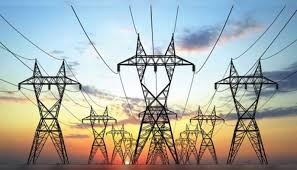


FG worries as over 92m Nigerians lack electricity
The Federal Government has declared that the number of Nigerians that lack access to electricity from the nationalgrid has increased to about 92 million.
It disclosed this at the closing ceremony of the 7th Nigeria International Energy Summit in Abuja, as operators in the power sector called for partnerships in the deployment of solar power to bridge the country’s electricity gap.
Nigeria generates and supplies between 3,000 and 4,000 megawatts of grid electricity to over 200 million citizens across the country, a development described as abysmally poor by experts and industry players.
Speaking at the summit, the Minister of Power, Chief Adebayo Adelabu, stated that though adequate access to energy by citizens had been a challenge globally, more than 40 percent of people in Nigeria were currently affected.
“Access to electricity is undeniably a fundamental requirement for socio-economic development and it is a pleasure to see so many dedicated individuals and experts gathered here in this hall to discuss strategies and solutions for bridging energy access gas.
“In recent years, significant progress has been made globally in improving access to electricity. However, a substantial portion of the world population still faces challenges in obtaining reliable and affordable electricity.
“Here in Nigeria it is estimated that a whopping 92 million people are still suffering from energy poverty, which is over 40 percent of our estimated population,” the Minister stated.
He called for cooperation by stakeholders to tackle the challenge, as the government alone would not be able to handle the situation.
“It is our collective responsibility to address this issue, as it has far reaching implications for poverty alleviation, healthcare, education and overall improvement in the quality of lives including the reduction of youth unemployment in our society,” Adelabu stated.
The Minister pointed out that electricity from the national grid may not get to every remote area, adding that such locations could be served with power from renewable energy sources.
“We believe that to reach these unserved and underserved communities, our focus must also be on renewable energy and distributed power models,” he told delegates at the summit.
He urged stakeholders to work together to bridge the energy access gap, “ensuring that electricity becomes a reality for all irrespective of our geographical location or socio-economic status.”
Adelabu, however, urged Nigerians to exercise patience with the Federal Government, stressing that “they (Nigerians) must give us time to address these issues, so that we can achieve an enduring and sustainable energy.”
Proffering measures to tackle the electricity supply challenge in Nigeria, the Chief Executive Officer, JRB Solar Investment Limited, Jimoh Badamosi, told journalists in Abuja that the government should partner with operators in using solar energy to reduce the energy crisis nationwide.
He described Nigeria as home to some of the world’s best potential for clean renewable energy, which could be used to enhance productivity, create jobs and improve the quality of life for the growing population.
Badamosi explained that JRB Solar had installed huge megawatts of electricity through solar energy to power homes, rural communities and organisations in different parts of the country, as the company was working to triple the number across Africa in the coming years.
“For us in JRB Solar Investment Limited, we are interested in a partnership with the government, which would enable us to generate power through solar energy systems to support the national grid. The sun shines on every roof and it is only fair and sensible to let it address our energy needs,” he stated.
He noted that the private sector was currently the driving force behind much of the renewable energy projects in Africa, adding that partnership between state-owned enterprises and private organisations would be a catalyst that would transform Nigeria’s energy sector.
Badamosi pointed out that more indigenous private renewable energy companies were springing up in Nigeria and Africa, many of which were capable of handling big projects.
He therefore called for workable partnership between state-owned enterprises and private organisations to transform the energy sector.
“I therefore urge our governments to put these companies into consideration when contracting for renewable energy projects. Having such confidence in indigenous renewable energy companies will further ensure the quicker socioeconomic transformation of the continent,” he stated.



